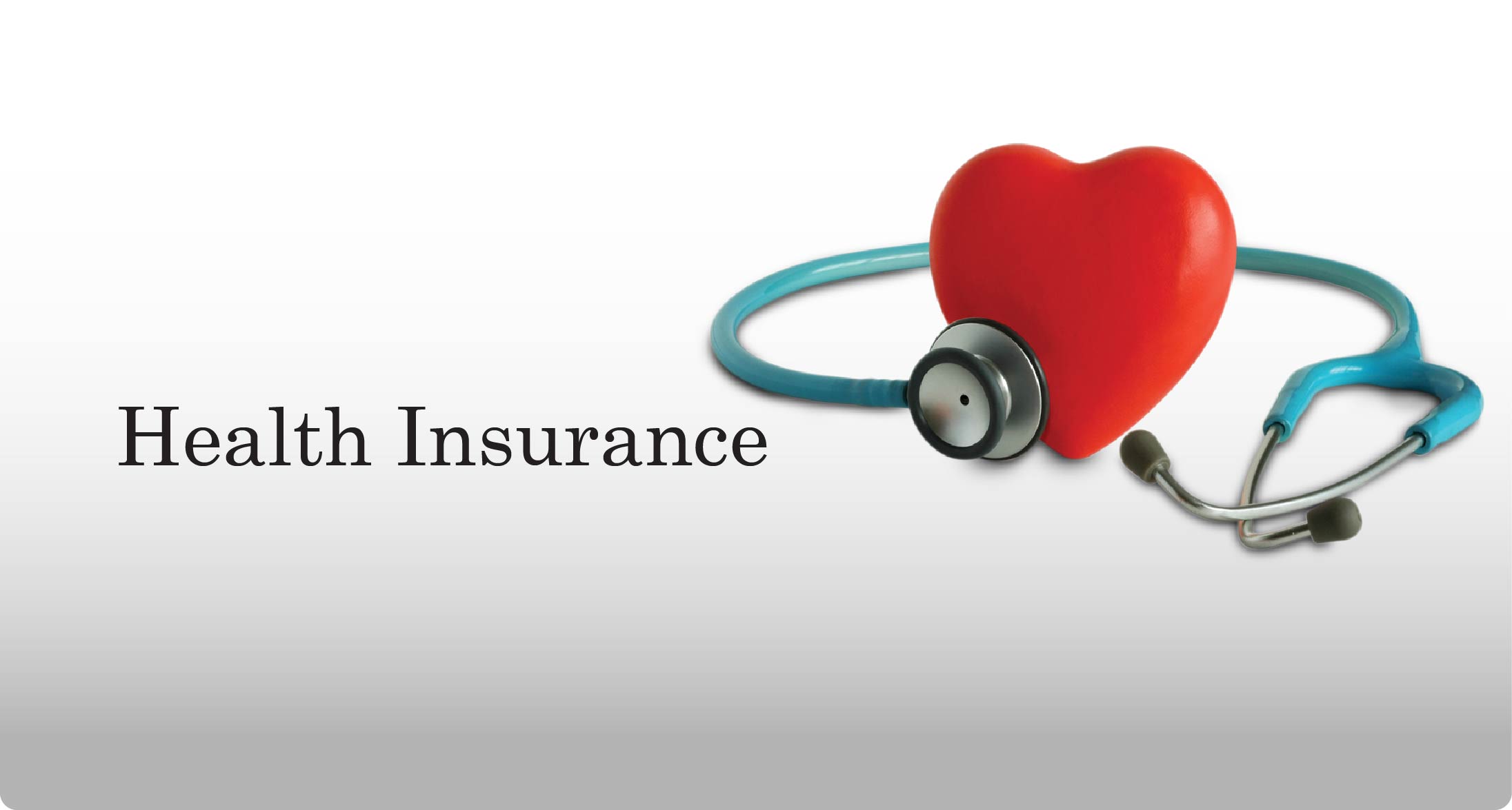A Step-by-Step Guide to Choosing Health Insurance in Jacksonville
In this comprehensive guide, we will walk you through the step-by-step process of choosing the best health insurance in Jacksonville

Selecting the right health insurance plan in Jacksonville can be a daunting task, with numerous options and factors to consider. Your health insurance choice is crucial, as it can significantly impact your financial well-being and access to healthcare services. In this comprehensive guide, we will walk you through the step-by-step process of choosing the best health insurance in Jacksonville. We will cover essential topics, including comparing health plan networks, understanding the average cost of health insurance, considering plan tiers and family size, exploring different types of coverage, and providing a list of individual and family health insurance companies in Jacksonville. Additionally, we will discuss ways to save money on health insurance and address common questions about including parents in group medical insurance.
Step 1: Understanding Health Plan Networks
One of the first steps in choosing health insurance in Jacksonville is to understand health plan networks. Health insurance plans often come with a network of healthcare providers, including doctors, hospitals, and clinics. There are typically two types of networks:
Preferred Provider Organization (PPO): PPO plans offer more flexibility in choosing healthcare providers. You can see specialists without referrals and visit out-of-network providers, although it may cost more.
Health Maintenance Organization (HMO): HMO plans require you to select a primary care physician (PCP) and generally only cover care within the network. You'll need referrals to see specialists outside the network.
Consider your healthcare needs and how important provider choice is to you when deciding between PPO and HMO plans. Jacksonville has a wide range of healthcare providers, so you'll likely have options with either network type.
Step 2: Average Cost of Health Insurance in Jacksonville
Understanding the average cost of health insurance in Jacksonville is crucial for budget planning. The cost of health insurance can vary significantly based on factors like your age, health status, and the type of plan you choose. On average, individual health insurance premiums in Jacksonville can range from $300 to $700 per month, while family plans can cost anywhere from $700 to $1,500 per month. Keep in mind that these are approximate figures, and your actual costs may differ.
Step 3: How the Plan Tier Affects Costs
Health insurance plans are often categorized into tiers based on their coverage levels. These tiers typically include Bronze, Silver, Gold, and Platinum, with Bronze plans having the lowest premiums but higher out-of-pocket costs and Platinum plans having the highest premiums but lower out-of-pocket costs.
Bronze: Lower premiums, higher deductibles, and higher out-of-pocket costs.
Silver: A balanced option with moderate premiums and moderate out-of-pocket costs.
Gold: Higher premiums but lower deductibles and out-of-pocket costs.
Platinum: Highest premiums but lowest deductibles and out-of-pocket costs.
Your choice of plan tier should align with your expected healthcare needs. If you anticipate frequent medical visits or have chronic health conditions, a Gold or Platinum plan may provide better value in the long run. However, if you're generally healthy and want to minimize monthly expenses, a Bronze or Silver plan might be suitable.
Step 4: How Family Size Affects Costs
The size of your family can significantly impact the cost of health insurance. When you include family members in your plan, the premium will increase. Most plans offer individual, couple, and family coverage options. Adding dependents, such as children or a spouse, will result in higher premiums. It's essential to consider your family's healthcare needs when selecting a plan and ensure that it provides adequate coverage for everyone.
Step 5: Choosing the Best Health Insurance
Choosing the best health insurance in Jacksonville requires careful consideration of your unique circumstances. Here are some additional factors to keep in mind:
Coverage Needs: Assess your current and anticipated healthcare needs. Do you have any ongoing medical conditions or expect major life changes (e.g., pregnancy) that will impact your healthcare requirements
Prescription Drug Coverage: If you regularly take prescription medications, review each plan's formulary (list of covered drugs) to ensure your medications are included.
Out-of-Pocket Maximum: Understand the maximum amount you'll have to pay out of pocket each year. This can be especially important in case of unexpected medical expenses.
Network Adequacy: Ensure that the plan's network includes the healthcare providers and facilities you prefer.
Provider Ratings: Research the quality and reputation of healthcare providers within the plan's network to ensure you receive quality care.
Step 6: Short-Term Health Insurance
Short-term health insurance is an option for individuals who need temporary coverage. These plans typically provide coverage for a limited duration, often up to 12 months, and may have lower premiums than traditional plans. However, they may not cover pre-existing conditions and may have limited benefits. Short-term plans can be a viable option for those in transitional periods, such as recent graduates or individuals between jobs, but they should not be considered a long-term solution.
Step 7: Medicaid Health Insurance Coverage
Medicaid is a government program that provides health insurance coverage to low-income individuals and families. Eligibility for Medicaid in Jacksonville is determined by factors such as income, household size, and citizenship status. If you qualify for Medicaid, it can be an affordable option for comprehensive healthcare coverage.
Step 8: Child Health Coverage
Ensuring that your children have adequate health insurance coverage is essential for their well-being. In Jacksonville, children may be eligible for Medicaid or the Children's Health Insurance Program (CHIP), which provides affordable healthcare options for families with lower incomes. Additionally, many private insurance plans offer family coverage that includes children.
Step 9: Individual and Family Health Insurance Companies in Jacksonville
To help you get started in your search for health insurance, here is a list of some reputable health insurance companies that offer individual and family plans in Jacksonville:
Florida Blue: Florida Blue is one of the largest health insurance providers in Florida, offering a range of plans for individuals and families.
Cigna: Cigna provides a variety of health insurance options with a strong network of healthcare providers in Jacksonville.
Humana: Humana offers a wide range of health plans, including Medicare Advantage, individual, and family plans.
Aetna: Aetna provides comprehensive health insurance coverage with a focus on wellness and preventive care.
UnitedHealthcare: UnitedHealthcare offers a range of health plans, including individual and family coverage, with a large network of providers.
Step 10: How to Save Money on Health Insurance
Health insurance can be a significant expense, but there are strategies to help you save money:
Shop Around: Compare quotes from multiple insurance providers to find the best rates.
Consider High Deductible Plans: High-deductible health plans (HDHPs) often have lower premiums. Pair them with a Health Savings Account (HSA) to save on taxes and cover out-of-pocket expenses.
Take Advantage of Preventive Care: Many insurance plans cover preventive services at no cost to you. Utilize these services to maintain your health and catch potential issues early.
Explore Subsidies: Depending on your income, you may qualify for subsidies through the Health Insurance Marketplace to reduce your premium costs.
Utilize Telemedicine: Telemedicine services can save you money by allowing you to consult with healthcare providers remotely for non-emergency issues.
Review Your Coverage Annually: Your healthcare needs may change over time
Step 11: What is the Best Health Insurance Plan
Determining the best health insurance plan for you ultimately depends on your individual needs and preferences. There is no one-size-fits-all answer because what works for one person may not work for another. However, here are some general tips to help you make an informed decision:
Assess Your Health: Consider your current health status and any pre-existing conditions. If you have ongoing medical needs, a plan with comprehensive coverage may be the best choice.
Budget Considerations: Evaluate your monthly budget and financial stability. Choose a plan that you can comfortably afford without sacrificing other essential expenses.
Provider Network: Ensure that the plan you select has a network of healthcare providers and facilities that you trust and prefer.
Coverage Options: Review the plan's coverage options, including prescription drug coverage, maternity care, mental health services, and preventive care.
Out-of-Pocket Costs: Compare the out-of-pocket costs, including deductibles, copayments, and coinsurance, to understand your potential financial responsibility.
Customer Reviews: Research customer reviews and ratings of the insurance companies and plans you are considering to gauge customer satisfaction.
Consult an Insurance Agent: If you find the process overwhelming, consider consulting an insurance agent or broker. They can provide personalized guidance and help you navigate the available options.
Step 12: How Health Insurance Covers Expenses
Understanding how health insurance covers expenses is crucial for making informed healthcare decisions. Health insurance plans typically involve several key components:
Premium: This is the amount you pay for your insurance coverage each month, regardless of whether you use healthcare services.
Deductible: The deductible is the amount you must pay out of pocket for covered healthcare services before your insurance plan starts paying.
Copayments: Copayments are fixed amounts you pay for specific services, such as doctor visits or prescription medications.
Coinsurance: Coinsurance is a percentage of the cost you share with your insurance company for covered services after you've met your deductible.
Out-of-Pocket Maximum: This is the most you'll have to pay for covered services in a plan year. Once you reach this limit, your insurance will cover 100% of covered services.
In-Network vs. Out-of-Network: Healthcare services received from in-network providers are usually less expensive than services from out-of-network providers. It's important to know the difference and stay within your plan's network whenever possible to minimize costs.
Step 13: Jacksonville Medical Insurance Statistics
Understanding the local healthcare landscape can provide valuable insights into health insurance choices. While specific statistics may change over time, as of my knowledge cutoff date in September 2021, here are some key healthcare statistics for Jacksonville, Florida:
Jacksonville is the largest city by land area in the contiguous United States, with a diverse population that requires a wide range of healthcare services.
The city is home to several major healthcare systems and hospitals, including the Mayo Clinic, Baptist Health, and UF Health Jacksonville, offering a variety of specialized care.
Healthcare costs in Jacksonville, as in many parts of the United States, can be a concern for residents. Health insurance can help mitigate these costs.
The prevalence of chronic conditions, such as diabetes and heart disease, underscores the importance of having adequate health insurance coverage in place.
Jacksonville residents may have unique healthcare needs based on factors such as age, income, and lifestyle. This diversity makes it essential for individuals to carefully assess their insurance options.
It's essential to access the most up-to-date healthcare statistics and local information when making your health insurance decisions in 2023, as healthcare trends and demographics may have changed.
Step 14: Health Insurance Plans for Every Stage of Life
Your healthcare needs can change at different stages of life, so it's important to choose a health insurance plan that adapts to your evolving circumstances. Here are some considerations for different life stages:
Young Adults: As a young adult, you may prioritize affordable premiums and basic coverage. Look for plans that offer preventive care and access to a network of healthcare providers.
Families: Families should consider plans that provide comprehensive coverage for both adults and children. Look for coverage options that include pediatric care, maternity care, and well-child visits.
Seniors: Seniors often have unique healthcare needs, and many become eligible for Medicare at age 65. Supplemental plans, such as Medicare Advantage or Medigap, can provide additional coverage to complement Medicare.
Retirees: Upon retirement, you may need to transition from employer-sponsored coverage to Medicare or private insurance. Evaluate your options and consider long-term care insurance for future needs.
Self-Employed Individuals: If you're self-employed, you'll need to purchase your health insurance. Explore the Health Insurance Marketplace for options and consider high-deductible plans paired with HSAs for tax advantages.
Small Business Owners: Small business owners can explore group health insurance plans to provide coverage for employees. Offering health benefits can be a valuable perk for attracting and retaining talent.
Step 15: Dental and Vision Insurance
In addition to medical coverage, it's important to consider dental and vision insurance as part of your overall health and well-being. These types of insurance can help you manage the costs of routine check-ups and necessary treatments for your eyes and teeth.
Dental Insurance: Dental insurance typically covers preventive care, such as cleanings and check-ups, as well as more extensive procedures like fillings and root canals. Some health insurance plans may include dental coverage, but standalone dental plans are also available.
Vision Insurance: Vision insurance covers eye exams, prescription eyeglasses, and contact lenses. Regular eye exams are essential for maintaining good eye health and catching potential issues early.
Including dental and vision insurance in your overall health insurance plan can help you save on these specific healthcare expenses.
Step 16: Short-Term Health Insurance
Short-term health insurance, as mentioned earlier, is designed for temporary coverage needs. Here are some additional considerations if you're thinking about short-term insurance:
Coverage Duration: Short-term plans typically offer coverage for up to 12 months, although some states may have shorter or longer limits. Be aware of the coverage duration and plan accordingly.
Limited Benefits: Short-term plans may not cover pre-existing conditions, maternity care, or mental health services. Review the plan's coverage carefully to understand its limitations.
Affordability: Short-term plans often have lower premiums than traditional plans, making them an attractive option for those in transition or facing a brief coverage gap.
Not a Long-Term Solution: It's important to note that short-term insurance is not intended to replace comprehensive health insurance. It's best suited for temporary situations, such as waiting for employer-sponsored coverage to begin or during a brief period of unemployment.
Step 17: Medicare
Medicare is a federal health insurance program primarily for individuals aged 65 and older, as well as some younger individuals with certain disabilities. It consists of several parts, each covering specific aspects of healthcare:
Medicare Part A: This covers hospital care, skilled nursing facility care, and some home healthcare services.
Medicare Part B: Part B covers medical services and outpatient care, such as doctor visits, preventive services, and durable medical equipment.
Medicare Part C (Medicare Advantage): These are private health plans that combine Parts A and B, often with additional benefits like prescription drug coverage and dental or vision care.
Medicare Part D: This part provides prescription drug coverage and can be added to Original Medicare (Parts A and B) or included in a Medicare Advantage plan.
Seniors in Jacksonville have access to a range of Medicare options, including Original Medicare and Medicare Advantage plans offered by various private insurance companies. Choosing the right Medicare plan involves considering your healthcare needs, budget, and preferred providers.
Step 18: Including Parents in Group Medical Insurance
If you're considering whether to include your parents in your group medical insurance plan, there are several factors to evaluate:
Eligibility: Check if your insurance plan allows you to add parents as dependents. Some plans only permit spouses and children as dependents.
Cost: Adding parents to your plan will increase your premium. Compare the added cost to the benefits of providing coverage for your parents.
Parents' Health Needs: Consider your parents' health status and healthcare needs. If they have pre-existing conditions or require frequent medical care, having insurance coverage can be beneficial.
Coverage Options: Review the coverage options and choose a plan that suits both your needs and your parents' needs. Some plans may provide more comprehensive coverage for older individuals.
Legal and Financial Implications: Consult with an insurance agent or HR department to understand any legal and financial implications of adding parents to your plan, especially if your parents are not considered tax dependents.
Choosing the right health insurance in Jacksonville is a critical decision that requires careful consideration of your unique circumstances and needs. By following this comprehensive guide, you can navigate the complexities of the healthcare system and make an informed choice. Remember to assess your healthcare needs, understand the different plan options, and take into account factors such as network adequacy, cost, and coverage levels.
Whether you're a young adult, a family, a senior, or a business owner, there are health insurance options available to suit your life stage and situation. Additionally, you can explore supplemental coverage like dental and vision insurance, consider short-term plans for temporary needs, and explore government programs like Medicaid or Medicare if you qualify.
Ultimately, the best health insurance plan for you is one that provides the coverage you need at a cost you can afford. Regularly review your coverage to ensure it continues to meet your changing needs and stay informed about local healthcare trends and insurance options in Jacksonville. With the right health insurance in place, you can enjoy peace of mind knowing that you have access to the healthcare services you need to maintain your well-being and address medical concerns as they arise.
What's Your Reaction?




















